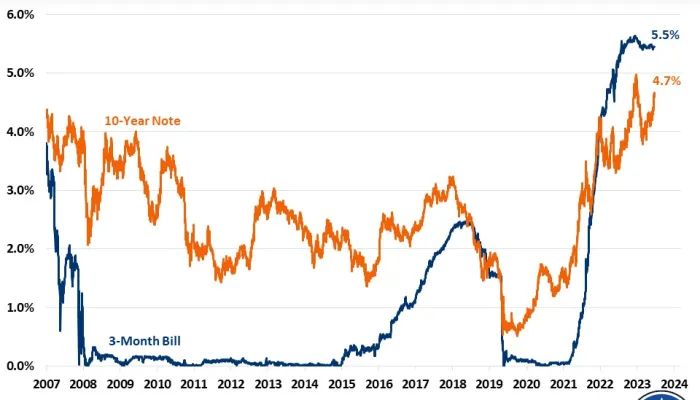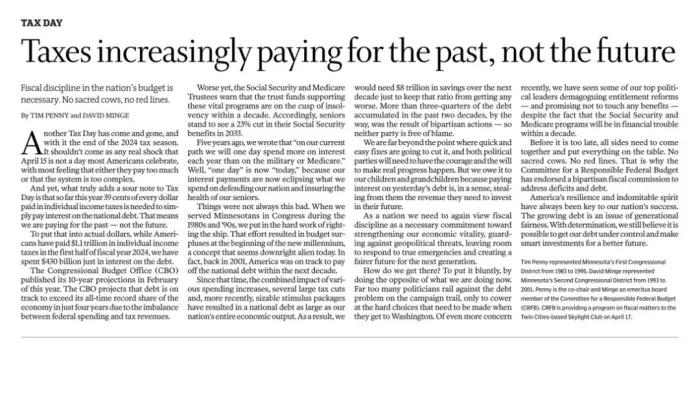CBO Estimates $1.5 Trillion Deficit For First 11 Months of Fiscal Year
In the first eleven months of fiscal year 2023, the United States borrowed $1.5 trillion, with a $90 billion surplus in August due to the reversal of the President's student debt cancellation, according to the latest Monthly Budget Review from the Congressional Budget Office.
The following is a statement from Maya MacGuineas, president of the Committee for a Responsible Federal Budget:
Eleven months in, and we have already borrowed $1.5 trillion this fiscal year, compared to $946 billion at the same point last year. On top of that dismal fiscal news, we still haven’t funded the government past the end of the month -- Washington appears to be sticking to its time-honored tradition of governing poorly, and by perpetual crises.
The deficit is on track to be double what it was last year after excluding the effects of the President’s overturned student debt cancellation plan. That is doubly disturbing given that the economy is growing and unemployment remains low; usually the deficit shrinks, not grows, during economic expansions. It’s just another sign of the deteriorating fiscal conditions of the federal budget and the immense challenges we face in turning the tide towards fiscal sustainability.
As lawmakers work to keep the government’s lights on this month, they should keep in mind the need to quickly pivot towards more savings to help curtail our borrowing binge. In just six years, the national debt will hit a new record, and within just ten years, the trust funds for some of the largest programs – Social Security, Medicare, and highways – will be exhausted. We’ll need to build on the success of the Fiscal Responsibility Act by reducing deficits even further; if we can’t do so through regular order, a bipartisan fiscal commission could be the right venue to achieve compromise.
###
For more information, please contact Kim McIntyre, Director of Media Relations, at mcintyre@crfb.org.


